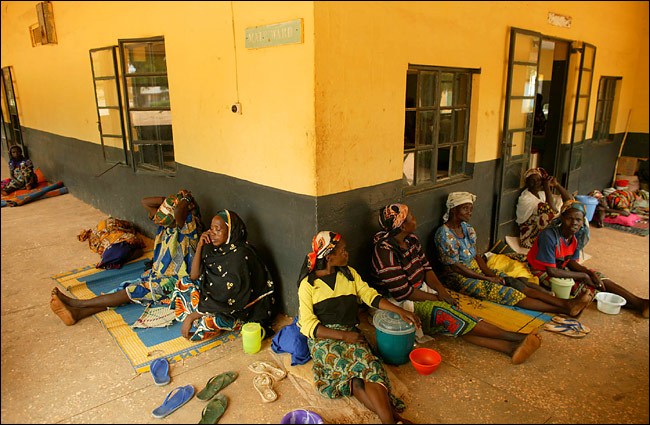
Three years after the National Health Act was signed into law in 2014, the much anticipated benefits are yet to be felt by Nigerians.
The bill took 10 years to become law. But while the Federal Government is still clarifying its operational guidelines, millions of Nigerians are suffering under the burden of out-of-pocket expenses on healthcare, a problem that was to be largely addressed by the Act.
Removing the burden will be a key relief for many, especially with the majority of Nigerians groaning under the nation’s economic recession.
Michael Joseph, a taxi driver, recounts sadly how his wife lost their baby four days after giving birth at home.
“I was unable to register my wife for antenatal services. In fact, we can barely survive ever since I had an accident eight months ago”, he told PREMIUM TIMES.
Mr. Joseph might have been spared his ordeal, had the National Health Act become functional.
A critical component of the law is the Basic Healthcare Provision Fund. According to the Act, this fund will be financed from one per cent of the Federal Government’s Consolidated Revenue Fund, international donors grant and other sources. It is surprising however that the law has no guidelines for the administration of the fund.
Waheed Abass, the Executive Secretary of the Oyo State Primary Health Care Development Agency, told PREMIUM TIMES that there was no appropriation for the basic health care fund in the 2015 and 2016 budgets, and there was high level of uncertainty it would be included in the 2017 budget.
“The basic health care fund wasn’t in the 2015 budget; we missed the 2015 budget. In 2016, we have no excuse. It was the last administration that signed that bill into law. They (present administration of President Muhammadu Buhari) have to go through it, even at the national level to be convinced this is the right way to go. The fact that the former administration signed some bills doesn’t mean that this present administration will be fully informed and be ready to fully implement them.
“But it is an Act of Nigeria. We are talking of billions of naira, so the government has to be convinced. I believe the basic health care fund is the best that could happen to Nigeria and practitioners in the health sector need to do more to make sure that the legislators and state governors, local government chairmen do more.”
The Minister of Health, Isaac Adewole, told PREMIUM TIMES discussions are ongoing with respect to the one per cent consolidated revenue to finance the fund.
“When we came on board in 2015, the budget was already passed, we couldn’t do anything about it. None of us could touch the 2016 budget, it was prepared before we came on board. But for 2017, we are looking into the implementation.
“The National Council on Health in September developed the guidelines for administration, disbursement and fund management of the Basic Healthcare Provision Fund which will be presented at the Federal Executive Council meeting in January 2017.
“So we already have a guideline for disbursing it and we are looking for money even outside our budget, to start implementing it. We are looking for money to start the pilot in three states and implement the provision,” Mr. Adewole said.
However, while the government is still working the politics of the basic health care fund, Nigerians are feeling the pangs of funding their health care from their meagre resources.
A new mother, Salome Ajekwe, said she struggled to get N1,500 to register for antenatal services at a primary health care centre in Abuja, and N3,000 to be delivered of her baby at the facility.
For Aisha Ibrahim, her fear is that her child may not receive immunisation. There was vaccine stockout at the Kunchigoro primary healthcare centre on the day she took the child there and she could not raise money to go back the following week to check if the vaccine was available or go to another centre.
Talatu Sule, a mother of two children, aged 4 and 6 years, begs around the Central Business District of Abuja. The four-year-old daughter was coughing and also running temperature. For Mrs. Sule, going to a healthcare centre was out of the question because she would have to pay for the prescribed drugs, when she did not even have money to feed herself and the children, talk less of buying drugs.
Investigations revealed that at primary healthcare centres, adult patients pay N500 for medical consultations while children pay N300. Child delivery at the PHC costs from N3,000 to N5,000.
Unfortunately, the law which could have helped a many of the poor Nigerians is yet to be implemented two years after it was signed.
END

Be the first to comment